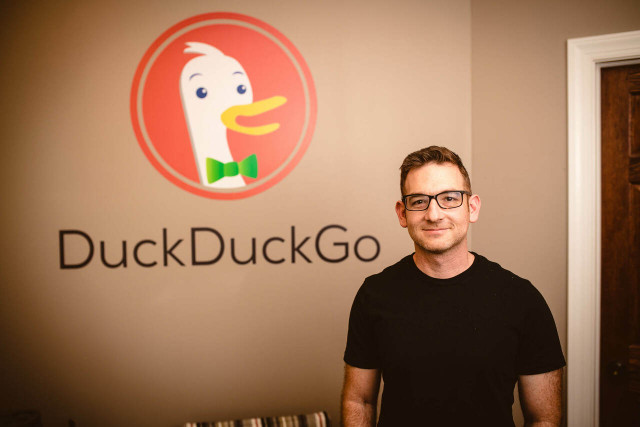Using an alternative search engine can be a sustainable way to browse privately. Here are the pros and cons of several popular alternative search engines you can try.
So why should you be using an alternative search engine? Usually used to refer to any browser created outside of those owned by global player companies such as Google, Yahoo and Bing, this form of browsing has taken on new popularity in recent years.
With concerns growing over bigger corporation’s secrecy in regard to where our personal data is going as well as their lack of commitment to sustainability, many people are becoming reluctant to trust mainstream search engines with their data. It can also be hard to figure out which browsers are actually consistent in their commitment towards sustainability (to learn more about this, check out our article on greenwashing). However, many alternative search engines are working to make climate protection and transparency a thoughtful priority in your web browsing experience.
Not sure where to start? Here are seven examples of easy to use and alternative search engines that are actively working towards sustainability and privacy.
1. DuckDuckGo

One of the more well-known alternative search engines, the previously mentioned DuckDuckGo has gained popularity by marketing itself as a browser fully committed to private browsing. It achieves this by not collecting any data from your search history or sensitive personal information. In terms of sustainability, DuckDuckGo claims to have become fully carbon negative by 2020 and is known to have donated 125 percent of its calculated emission to carbon emission reduction projects.
However, something to be aware of when using this search engine is based in the U.S., which is part of the Five Eyes alliance, an intelligence service that is known for collecting mass surveillance data from internet companies.
2. OceanHero
Often used as a browser extension as well as a downloadable app, OceanHero is a search engine focused around keeping our oceans plastic free. For every five or so tabs open or searches made, this company will pay for the collection of one ocean-bound plastic bottle. In terms of privacy, this search engine is also similarly helpful, as they claim to not resell any search history or data to third-party companies.
Not only is this a practical way to reduce plastic pollution in the oceans, but OceanHero is also actively working towards reducing pollution-related inequality in areas of extreme poverty. OceanHero is based in Düsseldorf, Germany.
3. Boardreader



Another alternative to Google, Boardreader can be used more specifically to search for posts and comments within forums, online blogs, news sites, and message boards. Although a little more complicated to use than other alternatives, this search engine is the perfect tool for research as it allows you to filter your results by date, language, site, etc. in more detail.
At this current time, Boardreader has little information available about its commitment to sustainability; however, it claims to retain your personal data and browsing habits as little as possible.
4. StartPage
Similar to DuckDuckGo, StartPage is a search engine that bases your browsing around privacy and anonymity whilst online. Branding itself as ‘the world’s most private search engine’, StartPage does not track or store any of your data and even allows you to browse external sites without cookies using a proxy URL service. This browser also claims to be the search engine with the most reduced carbon footprint via isolating its physical servers and in-person data handling to the Netherlands only.
5. Ecosia



Popular and easy to use, Ecosia is an alternative search engine that invests in tree planting by donating 80 percent of its profits to NGOs dedicated to helping the conservation of tropical rainforest ecosystems. By simply searching the web, your searches will be part of active climate protection and sustainable planting practices, with Ecosia also claiming to be completely CO2 neutral.
Ecosia is also a Certified B Corporation, meaning that it has an Impact Business Model and meets high performance, accountability and transparency standards. Ecosia as a B Corp is especially focused on the environment.
However, one thing to keep in mind is that Ecosia’s searching service is not fully private, as this browser collects and temporarily stores search data and personal information.
6. Qwant
Another alternative search engine prioritizing data protection, Qwant is a France-based company that claims to prevent tracking and the sale of personal data, as well as providing an objective and neutral search experience. Not unlike Ecosia or DuckDuckGo, this search engine has a focus on keeping your internet habits private and safe, as well as a commitment to becoming carbon zero.
However, Qwant has been criticized for tracking its users’ IP addresses and sending browsing data to Microsoft to improve its search accuracy.
7. Disconnect Search
Last but not least, Disconnect is a search engine that allows you to conduct anonymous searches through any browser of your choice. Disconnect Search’s main feature is its browser extension that allows you to block tracking sites and advertising requests easily and practically.
Although this search engine is not particularly transparent in terms of sustainability and green browsing, it prides itself on providing a secure and private service by not logging any of your personal information or browsing keywords.
Which Alternative Search Engine You Should Try
So, which of these alternative search engine you should try really appears to be down to whether your priority when browsing is having a completely private search or keeping your web activity as green as possible.
- In particular, Ecosia and OceanHero appear to be the most obviously focused on climate protection and actively promoting green browsing within their user bases.
- However, others such as StartPage, Qwant and Disconnect have equal if not more of a focus on keeping your data private and promoting search neutrality.
Read more:
- Renewable Energy Certificate: How ‘Green’ Are They, Really?
- 5 Most Effective Tips on How to be Motivated
- 10 Apps for a Sustainable Lifestyle
Do you like this post?








